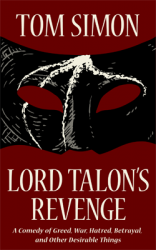It comes to my notice that silver bullion, after trading a bit lower for several months, has just rallied above $32 per troy ounce (London fix), or £20 per ounce in sterling. This figure has a sad historical significance.
In the Middle Ages, the values of English coins were legally defined in terms of Tower weight. This system of measures was nearly identical to the modern troy units: the ounce and pound were the same, but the size of the grain, and the number of grains per ounce, were different. (Tower grains are sometimes called ‘wheat grains’, and troy grains are called ‘barleycorns’, to reflect this difference.) The same units, with one annoying variation, were used to denominate and to weigh silver coin.
The pound sterling — £1 — originally equalled one Tower pound of sterling silver; it was divided into 20 shillings of 12 pence each, making 240 pence to the pound. Just to make things difficult (for what would English measures be, if they were rational?) the Tower pound was divided into 12 ounces of 20 pennyweight each. Therefore one penny contained exactly one pennyweight of sterling silver, but a shilling was only three-fifths of an ounce.
Let us ignore the difference between sterling silver (92.5% silver by weight) and fine silver (99.9%). Pure silver is too soft to use in coinage or much of anything else. Alloying it with 7.5% copper made it hard enough to withstand daily wear and tear, and also provided a small profit to pay the expenses of minting. We can consider a mediaeval English penny, including the cost of coining it, of effectively equal value to a pennyweight of pure silver. It is, as they say (in this case literally), ‘close enough for government’.
Today, as I have said, the price of silver crossed above £20 per troy ounce, or £1 per pennyweight. A so-called pound sterling today buys you as much silver as went into a single penny in the Middle Ages. It then follows that the pound has been devalued by a factor of 240 to 1, compared with its original valuation. And it also follows — and this is the sad historical significance — that the old saying, ‘In for a penny, in for a pound,’ has become a tautology — for a pound and a penny are now the same. (I do not speak of the decimalized ‘New Penny’, which is not a coin but a joke.) ‘Dollars to doughnuts’ is also beginning to express an equality, rather than long odds in the dollar’s favour. We shall have to invent some new idioms. And for that we can thank the rascally debasers of silver coin, and the mad printers of fiat money — that is, all our politicians for the last 500 years. I hope they would at least say, ‘You’re welcome.’








Recent Comments